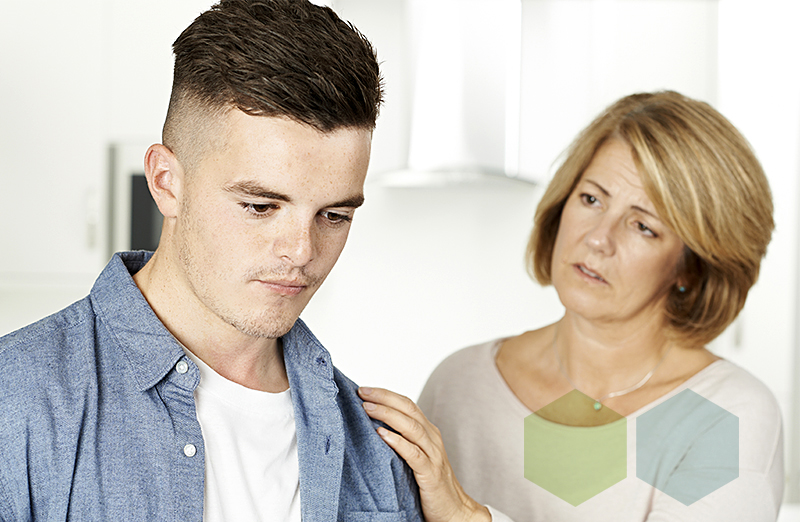He loved sports. Football, baseball, basketball, tennis, hockey. His preoccupation with all physical contests seemed at least harmless and probably a net positive. Sports emphasize self-discipline, teamwork, setting and achieving high goals for yourself. Aren’t those core values that every young person needs to learn to live successfully in our world?
So, I encouraged his passion for athletics and competition. I didn’t notice when his behavior began to blur the lines between committed and consumed, when he began caring more about the odds than the outcome. I didn’t recognize gambling addiction, an oversight I now know to be very common. There are reasons why it’s called the hidden addiction.
Young men, ages 18-25, stand at high risk of getting hooked on gambling. In fact, they represent one of the most at-risk groups of potential problem gamblers. Natural brain development delays their ability to comprehend and predict long-term consequences until after age 25. This physical reality leaves young men especially vulnerable to engaging in high-risk, high-thrill activities. The excitement of intense competition, especially combined with the drama and tension that occurs when betting becomes part of the game, act like an unavoidable magnet. In fact, combining the thrill of victory and the agony of defeat with actual personal financial losses or gains seems like the perfect cocktail to entice and inebriate many young men. And it is.
I didn’t know all of this, any more than I realized how surprisingly simple it is to wager on sports. You don’t need to fly to Vegas or find a bookie. You don’t need big bucks. Small bets and credit cards accepted. Just surf on over to the DraftKings or FanDuel websites. They might ask you your age but it’s easy to fool a virtual bouncer and get into the club.
Further, gambling is not a highly visible or messy addiction like drugs or alcohol. I couldn’t tell when my son was gambling like I could if he had been drinking or certainly if he was doing drugs. Maybe it’s the invisible nature of this disorder that makes it so deadly. More people addicted to gambling commit suicide than those addicted to other substances or behaviors. By the time you see how sick they are, it may be too late.
Knowing all this now, I am grateful for our wake-up call, one that occurred long before my son became too desperate to consider taking his life. I came home one day, opened a credit card bill and discovered that the loaner card I gave him to cover college emergencies showed a total of $10,000 in charges to gambling websites.
Once I pushed past the initial shock and panic, I felt unbelievable angry. I simply couldn’t understand how he could be so thoughtless. How could he justify spending that much money? Wasn’t his college tuition and board expensive enough? I wanted to yell and vent my anger at him. And, I did.
Eventually, you realize that staying angry at someone whose brain is trapped by addiction is a futile and even cruel response. Yes, my son had a choice whether to place that first or even the third or fourth bet. But, somewhere along the line, he lost the ability to make good decisions. His brain’s overwhelming demand for the adrenaline and dopamine released by the act of gambling drowned out any chance of rational, reasonable thought. Just like alcohol or heroin, the brain’s dependence on the drug of gambling trumped anything and everything else.
He had lost his way long before I lost my money. Just neither of us knew how much.
I am so grateful that treatment is leading my son back to himself, helping him mange his brain disorder in more healthy, productive ways. I’m also relieved that I turned to Maryhaven for help too. While a normal reaction, persistently feeling betrayed and bitter is no way to live and certainly no way to parent a child with an addiction. I needed an expert to work through my damaging emotions and reactions, and to offer me constructive solutions to practical issues like repaying the debt.
I, too, have restored my sense of balance. I can hope for better days ahead. My son got another chance. And so did I.
